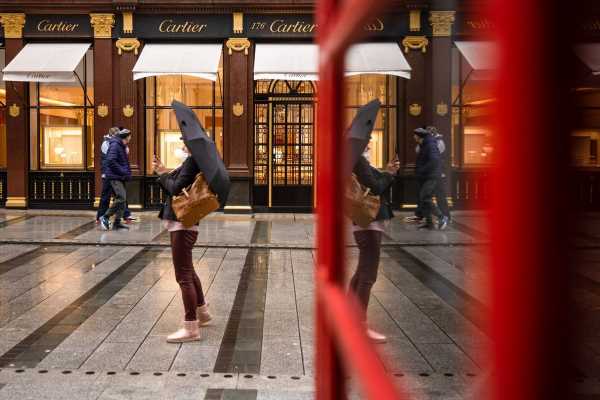In this article
Almost 9 million people in Britain had to borrow more money by the end of last year to help them through the crisis, according to new figures that show widening gaps between the rich and the poor.
The government data also showed self-employed workers were more likely to report reduced hours and income. The findings feed a debate about how Boris Johnson’s administration can best protect segments of the population like the young and lowest paid who have taken the hardest economic hit during the crisis.
Chancellor of the Exchequer Rishi Sunak and Bank of England Governor Andrew Bailey have highlighted those concerns in recent weeks and begun talking about measures that could bridge the inequality gap.
“The uneven effects of Covid concern me,” Bailey said in a webinar on Wednesday. “It’s clear to me we’ve got to come out of Covid in a way that addresses all parts of the population.”
People under the age of 30 and those with household incomes of less than 10,000 pounds ($13,700) were far more likely to be furloughed than the general population, the Office for National Statisticssaid on Thursday.
Among people unable to work, more than half of the top 20% of earners continued to be paid in full, compared with little more than a quarter of those in the bottom 20%. Self-employed workers and the disabled were more likely to have borrowed 1,000 pounds or more. Meanwhile fewer people were able to save for the year ahead.
The findings put pressure on Sunak to act in his annual budget statement, which is due on March 3. With thedeficit at its highest in peacetime, there are calls for the better off to shoulder the burden of future tax increases.
Separate ONS figures showed the gap between rich and poor was widening even before the pandemic struck.
Incomeinequality, as measured by the Gini coefficient, rose to 36.3% in the financial year through March, its highest for a decade. The income share of the richest 1% has increased from 7% to 8.3% since 2011.
The inflation-adjusted median income of the poorest fifth of peoplefell by 3.8% between 2017 and 2020. The richest fifth meanwhile saw their incomes steadily grow.
Source: Read Full Article
